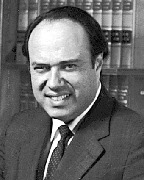Values of condominium units have fallen in some cases by as much as 50%. I question how local assessors in good conscience can not recognize this drop when they assess condo units.
In this article, I will discuss how two situations should sway assessors. The first is the bulk sale of condo units. The second is the auction of condo units.
A Bulk Sale of Condo Units
A bulk sale of condo units is good evidence of fair market value. A bulk sale of condo units in a condo building between a willing seller and a willing buyer is as good evidence of fair market value as an auction of units to multiple buyers.
Bulk sales usually are between sophisticated real estate sellers and buyers. The local board of assessors may fail to accept an arms length bulk sale of condo values as the best evidence of the fair cash value of the condo units.
A bulk purchase of condo units does sometimes raise interesting valuation issues. For example, in the event the units are not identical, an appraiser may have to inspect all or many of the units.
Another valuation issue occurs if the bulk buyer chooses to rent out the condo units. The bulk buyer might argue that the valuation approach should be a capitalization of income approach rather than a bulk purchase in the event capitalization of income produces a low valuation.
The issue would of course get more complicated if the bulk purchaser sold a few of the condo units but rented most of the units.
In the event the assessors refuse to accept the bulk sales price for the units, an appeal by the buyer to the Mass. Appellate Tax Board is the avenue for the bulk buyer to get an abatement of the real estate taxes.
An Auction of Condo Units
In the current market, I submit that a real estate auction is just as good a way to determine the values of condo units as a bulk sale of condo units.
What is the Fair Cash
Value of a Property?
It seems clear to me that an arms length auction of condo units in a condo community to buyers in fact establishes the fair cash value for each unit, whether sold at or after the auction.
Assessors often refuse to accept that an auction is a valid way to establish fair cash value. Assessors generally think of an auction as a "fire sale" of condo units. In fact, I believe that an auction can be a good determination of the market.
The method used in assessing condo units which a developer is trying to sell is the comparable sales method. An auction meets each of the requirements of the comparable sales method. Each unit is similar to the other units with adjustments for size, location and number of rooms. Auctions are actual sales, not just opinions of value.
Many boards of assessors have in the past refused to consider foreclosures as having any significant bearing on establishing fair cash value.
However, an auction of many units in a condo is different than a foreclosure sale of a single condo unit. For example, in a 20 unit condo complex, the sale by auction of 10 of the units to 10 different and unrelated buyers certainly establishes the value of the 10 units sold and also of the 10 unsold units.
In a case before the Appellate Tax Board (ATB), the ATB stated that: "Fair cash value means fair market value, which is defined as the price at which a willing seller and buyer will agree if both of them are fully informed and under no compulsion." Boston Gas Co. v. Assessors of Boston, 334 Mass. 549, 566 (1956).
The ATB and our courts interpret compulsion very narrowly. Compulsion has been defined as "duress, fraud or imperative need for immediate cash at a cost that would preclude a free market." Epstein v. Boston Housing Authority, 317 Mass. 297, 300 (1944). While there is compulsion in a foreclosure, in an auction of multiple condo units, in my opinion, there is no compulsion. Rather than sell one unit a month for many months, the developer has decided to use an auction to market all of the units at the same time and move on. For example, we did all of the legal work for an auction at the end of 2008. Approximately one third of the units sold at the auction. The master deed was recorded in January 2009. We closed all of the units in 2009, both those that we put under agreement at the auction and those that we put under agreement after the auction. Clearly, the auction determined the value of all of the units.
The "tax date" in Mass. for fiscal 2010 (that is, July 1, 2009, to June 30, 2010) is January 1, 2009. Assessors must determine fair cash value as of January 1, 2009. In the event that an auction was held in 2008 and 10 of the 20 condo units in a building were sold at that auction, it seems to me that the auction in fact determines the fair cash value of all 20 units as of January 1, 2009.
An auction is a very efficient way of determining market value. It brings the entire market together at the same time and in the same room. Some people argue that by its very nature the auction causes people to bid below market. Others argue that the excitement of an auction causes people to over-pay. I submit that the bidding process at an auction produces the fair cash value of the property.
Saul Feldman is a real estate attorney with Feldman & Feldman, P.C., Boston.
Tags:
Current valuation of condominium units: Comparing bulk sales vs. the auction method
May 26, 2010 - Spotlights









